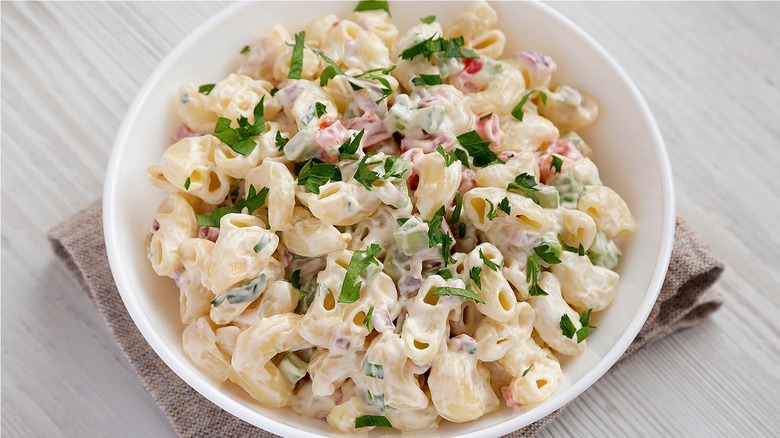You Should Start Seasoning Cold Foods More Generously
When digging into a dish of cold leftovers saved from the night before, be prepared for something surprising. Food that tasted perfect when served warm will likely now seem underseasoned, and you'll quickly be reaching for the salt shaker to liven it up. The same thing happens with foods intended to be served cold, like pasta or potato salad, cold soup, salad dressings, sandwiches, and cold cuts of meat. It's not the mind playing tricks, nor has that seasoning vanished into thin air. What's changed is how your taste buds perceive the food — and it all comes down to its temperature.
CABI Nutrition and Food Science reported the reason for this is that our taste buds open up more for food at warm temperatures, which makes it easier for them to perceive salt and seasonings present in food. Taste buds are the most sensitive when tasting food around 98 degrees Fahrenheit — or close to body temperature. They are more closed off with very cold or very hot food, and seasoning does not come through as strongly.
This taste bud fact is important to keep in mind when preparing your favorite cold dinners: Don't be shy when salting and spicing these dishes. The only way to make taste buds sing with cold food is to season it well — much more than you would if it was hot from the oven or pan.
This taste bud behavior may be linked to evolution
Cook's Illustrated put this taste bud theory to the test by preparing chicken broth with added salt and serving it at different temperatures: hot, warm, and cold. Even though the broth had the same amount of sodium, taste testers found the flavor between each batch was noticeably different, with hot broth tasting perfectly seasoned, room-temperature broth tasting way too salty, and cold broth needing tasting under-seasoned. Making the cold broth taste better required more salt than the warm batch.
Scientists think that taste buds reacting differently to hot and cold foods this way may be an evolutionary development, where the flavorfulness of cooked food — aided by its aroma — makes it taste more desirable. Food is tenderized and broken down when cooked, which makes it easier to digest than uncooked, raw food. Easier eating and digestion means more nutrition for the body; taste buds and the brain evolved to perceive salt and delicious flavors more easily in warm food to make humans choose them over cold foods.
Luckily for humans today, we can sidestep these taste bud roadblocks simply by giving our favorite cold dishes a few extra dashes of salt to taste so the flavor stays every bit as good.

